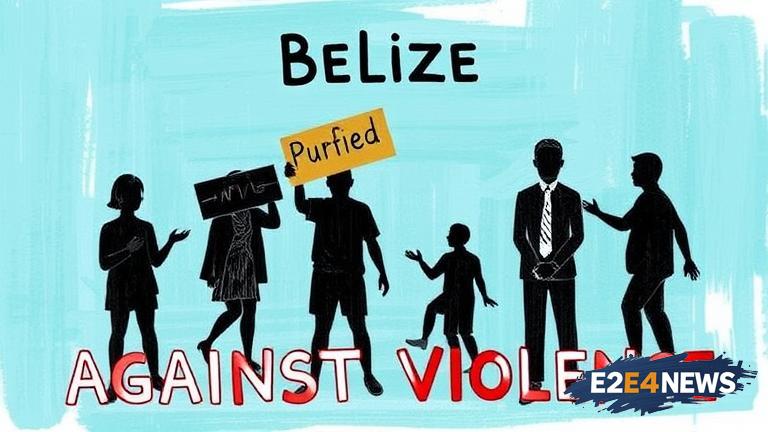The Belize Disability Association (BAPDA) has spoken out against the recent killing of disabled Belizeans, expressing deep concern and outrage over the violent incidents. According to BAPDA, the disabled community in Belize is not safe, and the organization is calling for immediate action to address the issue. The killings have sparked widespread fear and anxiety among disabled individuals and their families, who are demanding greater protection and support from the authorities. BAPDA has emphasized that the disabled community is particularly vulnerable to violence and exploitation, and that more needs to be done to prevent such incidents. The organization has also highlighted the importance of promoting inclusivity and accessibility in Belize, to ensure that disabled individuals have equal access to opportunities and services. Furthermore, BAPDA has stressed the need for greater awareness and education about disability issues, to combat stigma and discrimination. The Belizean government has been urged to take concrete steps to address the violence and ensure the safety and well-being of disabled citizens. This includes providing adequate support and resources for disabled individuals and their families, as well as implementing policies and programs to promote inclusivity and accessibility. BAPDA has also called for greater collaboration and coordination between government agencies, civil society organizations, and the private sector to address the issue. The organization has emphasized that the safety and well-being of disabled individuals is a collective responsibility, and that everyone has a role to play in promoting a more inclusive and supportive society. In addition, BAPDA has highlighted the importance of empowering disabled individuals and promoting their rights, to ensure that they are able to live independently and participate fully in society. The organization has also stressed the need for greater accountability and justice for victims of violence and their families. Overall, BAPDA’s statement has highlighted the urgent need for action to address the violence and promote the safety and well-being of disabled Belizeans. The organization’s calls for greater inclusivity, accessibility, and awareness have resonated with many in the community, and it is hoped that the authorities will take concrete steps to address the issue. As the situation continues to unfold, it is clear that the disabled community in Belize will remain a key focus of attention and concern. The Belizean government and civil society organizations must work together to ensure that disabled individuals are protected and supported, and that their rights are promoted and respected. By doing so, Belize can become a more inclusive and supportive society, where all citizens are able to thrive and reach their full potential.
